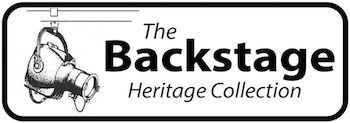
Lightboard (1975 - 1982)
Strand

Lightboard
1000 max channels
Memory control for large scale repertory theatres, developed from a concept by Richard Pilbrow, the consultant for the National Theatre and chairman of Theatre Projects. His concept was based on a fully saturated rig, controlled by a highly sophisticated purpose-built lighting control. Total control of intensity, colour change and provision for orientation (repositionable spotlights). The system was code-named TCS (Total Control System) but was known as Lightboard.
The concept of latest-action-takes-precedence (LTP) and multiple timed fades were also pioneered on this desk.
Multiple memory-content submasters, two manual / timed playbacks and monochrome VDUs eliminating unused channels.
The first lighting control to use a VDU (monitor).
Used a mini-computer, the DEC PDP-11.
Two lessons were learned quickly - the control room housing computer-based lighting control must be air-conditioned, and mains supplies for the system must be protected from the interference produced by the dimmers.
The first two versions were built in 1975 for the (not yet ready) National Theatres. The last was built in 1980 before Galaxy replaced it.
A total of 11 systems were built; 3 for the UK, and 7 for export, and 1 spare!
Mark 1 (Monochrome Monitors) 1975 - 1977
UK installations:
- National Theatre, London (Olivier, 620 ways, controlling Strand XTM dimmers)
- National Theatre, London (Lyttleton, 494 ways, controlling Strand XTM dimmers)
The Lightboards were run until 1986 (over 10 years of use), even using the Galaxy backup (1981) to backup the cues. They were replaced by Galaxy 2 desks. The in-house engineering team created their own replacement for the Lightboard's pan-tilt-focus controls in the Olivier theatre, as this function wasn't available until Galaxy 3. ​
- Royal Opera House, Covent Garden (240 ways) - known as Lightboard 1A
This board had 6 buttons on the playbacks so that you could control up to 6 running fades.
The Lightboard at the Opera House was replaced with a Siemens Sitralux B40 controlling the same 240 dimmers, in 1985.
Other installations:
- Burg Theater, Vienna (400 ways)
Mark 2 (Colour Monitors) 1978-1980
- Deutsche Oper, Berlin (400 ways, September 1978)
Replaced a Siemens Sitralux system with servo-mechanical fader levers and magnetic amplifiers installed in 1961 and updated with a punch-card system in 1968 (TABS, Autumn 1978).
- Schiller Theatre, Berlin
- Deutsches Schauspielhaus, Hamburg (400 ways, September 1978)
Replaced a 200 way AEG Thyratron tube system from 1956 (TABS, Autumn 1978)
- Kammerspiel, Deutsches Theater, Munich (280 ways, TCS2, 1979)
- Staatstheater, Stuttgart, Grosses Haus (600 ways, TCS2A, 1982)
- Staatstheater, Stuttgart, Kleines Haus (500 ways, TCS2A, 1982)
Huge thanks to David Bertenshaw, one of the original design team, who has written the documents below on The Workings of Lightboard.
Thanks also to Colin Wootton, who provided the drawings shown below.
Related Venues:
- Royal Opera House
- National Theatre - The Olivier Theatre
- National Theatre - The Lyttleton Theatre
- Schauspielhaus, Hamburg
- Deutsches Oper, Berlin
See also:
Documents

National Theatre Lightboard Modulation Trolley
Click on thumbnail to enlarge
[591kb JPEG]
From Alan Luxford Collection

Original Prototype Lightboard for the National Theatre
Click on thumbnail to enlarge
[760kb JPEG]
From Alan Luxford Collection

National Theatre Production Lighting Control System specification (June 1971)
By Richard Pilbrow (Theatre Projects) in advance of the completion of the National Theatre
[14.4Mb PDF]
From Richard Pilbrow Collection
Zip Archive of Printed Circuit Diagrams (Large Download) (July 2020)
[300Mb Zip File]
From David Bertenshaw Collection
Zip Archive of Wiring Diagrams (Large Download) (July 2020)
[195Mb Zip File]
From David Bertenshaw Collection
Exhibits in the Backstage Heritage Collection
Catalogue & Journal Entries for Lightboard in the Backstage Heritage Collection
Back to Control - Memory (Strand)
7560




















